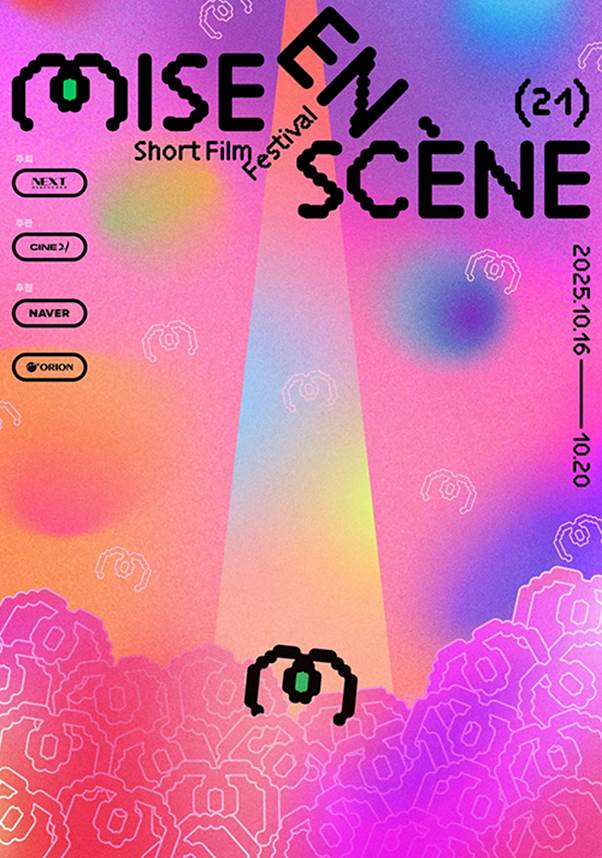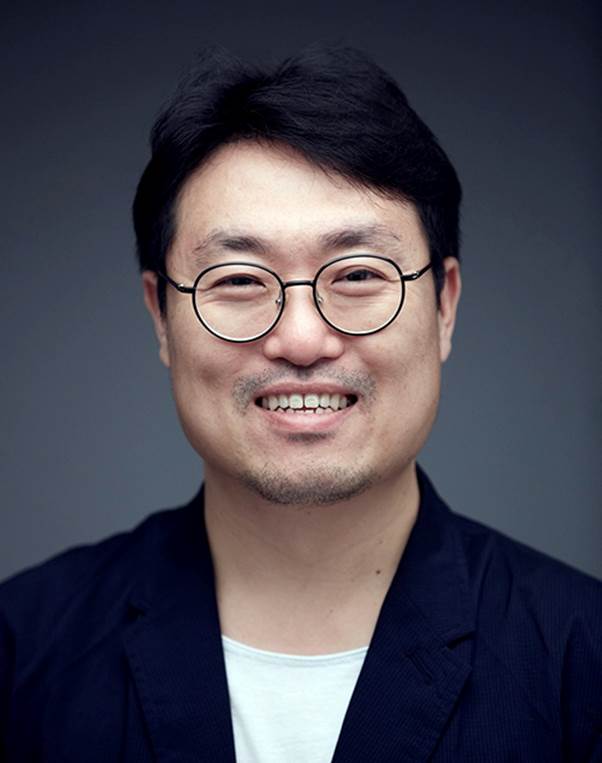[Interview] The Return of the Mise-en-scène Short Film Festival: A New Chapter in the Landscape of Korean Cinema
2025-10-15From October 16 to 20, the Korean film industry will witness one of its most significant cinematic events. The 21st Mise-en-scène Short Film Festival (MSFF), one of Korea’s most prestigious festivals dedicated to short films, embarks on a new chapter after a four-year hiatus. The new edition is led by an executive committee consisting of seven acclaimed directors, Um Tae-hwa, Jang Jae-hyun, Yoon Ga-eun, Lee Sang-geun, Lee Ok-seop, Jo Sung-hee, Han Jun-hee, and programmer Kim Young-woo, who has worked as a programmer at film festivals such as Busan International Film Festival (BIFF) and DMZ International Documentary Film Festival.
Out of a record-breaking 1,891 submissions, 65 short films have been selected for screening across five sections—each named after a distinguished Korean film and representing a specific genre: Social Drama, Romance/Melodrama, Comedy, Horror/Fantasy, and Action/Thriller.
The lineup will be judged by a dedicated jury panel of 10 directors, with 5 renowned actors serving as honorary jurors: Ju Ji-hoon, Park Jeong-min, Jeon Jong-seo, Kim Tae-ri, and Kim Da-mi.
In an email interview I conducted with programmer Kim Young-woo between October 2 and 5, he shared insights about the core philosophy and purpose behind the festival's establishment and explained that The Mise-en-scène Short Film Festival (MSFF) emerged in 2002 to address a specific need in the landscape of Korean cinema. “At the time, Korean short films predominantly focused on social issues and subjects, and major film festivals like Busan IFF and Jeonju IFF primarily showcased films of that tendency. The MSFF's introduction, with its declaration to “view short films by genre”, was considered a fresh and innovative challenge.”

According to Programmer Kim Young-woo, this approach captured the fervent attention of both audiences and young filmmakers, allowing the MSFF to grow into a film festival with a significant positioning in Korea. He emphasized that the festival's purpose went beyond mere screenings and continued, “With the active participation of veteran directors and actors and the interest of industry professionals seeking new talent suitable for genre films, the MSFF served as a vital platform for discovering and introducing creators with new talent and bold imagination.”
He considered this return of the MSFF for its 21st edition after a four-year hiatus deeply significant and moving, and added, “It was driven by the collaborative effort of directors who had been spotlighted or awarded at the MSFF in the past, underscoring the festival's enduring impact and necessity.”
In reference to the prolonged absence of the festival led to a growing sense of loss and regret within the industry and among filmmakers, He described, “The decision by former participants to band together to resurrect the MSFF signifies its role as an essential launchpad for new talent in the Korean film industry.”
Programmer Kim Young-woo evaluated the current creative and industrial environment markedly different from 2002, and said, “While various genre short films are now produced, and opportunities for screening are abundant through academic institutions, there is a perception among Korean filmmakers that the industry has been stagnant or hit a wall in recent years. The renewed MSFF is seen as a potential breakthrough and a source of new vitality to overcome this perceived stagnation. “
When asked about taking direction for the new chapter of the festival, he emphasized that the fundamental expectation remains the same as the first edition which is to encounter Korean short films that showcase a new sensibility and wild imagination. “The vision and objective of the revived MSFF is to discover new talent and films that accelerate with new cinematic language and sensibility, rather than those that resemble mass-produced, standardized products.” He said.

On the subject of vision and the criteria for the selection process, he pointed out that this process has always been distinct from other festivals. Programmer Kim Young-woo explained that while the huge volume of submissions necessitates a preliminary round, the MSFF tradition dictates that the final competitive selections involve both the Executive Committee directors and the final jury members. “This tradition, where actively working film directors participate in the final selection, has been crucial in establishing the MSFF's unique identity and taste, reflecting the directors' specific aesthetic judgments and preferences.”
According to Programmer Kim Young-woo, recognizing the physical demands of judging a rising number of Korean short film productions, the newly relaunched 21st edition has adapted its process. It maintains the core principle of director involvement while expanding the pool of expertise: “a first round shortlist is drawn up by a diverse group of professionals, including directors and critics, with the Executive Committee and final jury directors making the ultimate selection to ensure the films perfectly align with each of the MSFF's genre-based sections. This deep involvement and reflection of directorial taste remain the festival's defining characteristic and will continue to shape its future.”
He remarked that although the "viewing short films by genre" approach has always been the MSFF's identity, the prominence of genre films in the overall Korean cinema landscape means this approach may not carry the same declarative weight as before. “Nevertheless, reviewing the submissions reveals a continuing thirst for short films armed with a distinct genre sensibility and imagination. The festival seeks out challenging and audacious short films rather than safe or conventional ones.”
Programmer reaffirmed the MSFF's commitment, as a steadfast platform, to support and showcase short films created with the courage and spirit of innovation and defiance, characterizing it as a message to the film industry. “This genre-centered programming is a message to the industry that boldness and imagination are valued, and it helps filmmakers innovate by giving them a dedicated space to experiment with genre conventions, recognizing the short film as an independent art form defined by its ability to prioritize new cinematic language and sensibility over commercial constraints.”
Since its inception, the MSFF has named its genre sections after international films. This year, however, the titles have been changed to reference acclaimed Korean films instead. Explaining this change, he mentioned the motivation behind this shift. “For twenty years, the five genre sections of the Mise-en-scène Short Film Festival (MSFF) were named after international films, titles that became symbolic of the festival's identity and taste—to the point that many audience members still instinctively reference the old names. Upon relaunching after a four-year hiatus, the seven directors on the Executive Committee decided to change the section titles to reference acclaimed Korean films from the 2000s onward. The motivation was to select films that best reflect the unique identity of each section, opting for works that highlight the diversity and genre depth of Korean cinema, rather than titles that are already universally famous both domestically and internationally. The shift was the result of extensive discussion and deliberation over a list of candidates.”
Trailer of the 21st Mise-en-scène Short Film Festival (MSFF), Directed by Um Tae-hwa and starring Koo Kyo-hwan and Kim Go-eun / Source: Mise-en-scène Short Film Festival (MSFF)
He stated that by moving away from international cinematic benchmarks and grounding its core genre sections in contemporary Korean works, the festival asserts that Korean cinema itself now provides the definitive reference points for genre sophistication and imaginative filmmaking. “It signals a confident recognition that the depth, artistry, and genre-bending quality of domestic films are strong enough to serve as the iconic framework for a major short film festival. This pivot firmly anchors the MSFF's aesthetic and genre discussions within the context of a now globally dominant national cinema.” Programmer Kim Young-woo emphasized.
Referring to the annual production of 1,400 to 1,500 short films in Korea, he cited the critical challenge for them in the Korean cinema landscape as a diminishing number of opportunities to connect with audiences through major festivals, distribution, and other platforms, saying, “Furthermore, promising talents often struggle to link their abilities with the wider film industry to fully realize their potential. This is precisely where dedicated platforms like the Mise-en-scène Short Film Festival (MSFF) must play an essential role.”
Speaking about the anticipation for the emergence of a new generation of directors and creators to follow the senior filmmakers who led the growth and achievements of Korean cinema over the past three decades, he introduced MSFF as a key to discovering talents through short films and pointed out, “Indeed, a vast majority of the directors actively working today, who emerged around the 2010s and expanded the scope of Korean cinema, have a connection to the MSFF. Even the seven directors on the newly established Executive Committee were largely either awarded or first spotlighted at the MSFF before successfully debuting significant feature films. The festival has also been instrumental in discovering and promoting numerous screenwriters and actors.”
Programmer Kim Young-woo described continuing this active role as the very reason and future direction for the MSFF's relaunch, and as a closing remark, he added, “For this year's edition, the primary goal is a stable operation and successful re-establishment of the festival after the four-year hiatus. With keen interest from audiences and strong support from film industry professionals, the MSFF aims to meet these high expectations, grow into an even better festival, and solidify its influence as a vital bridge between emerging talent and the feature film industry. While there may not be specific new programs detailed at this moment, the anticipated achievement is simply the successful continuation of its legacy as a pioneering platform for genre imagination and new talent.”
How about this article?
- Like1
- Support0
- Amazing0
- Sad0
- Curious0
- Insightful0


